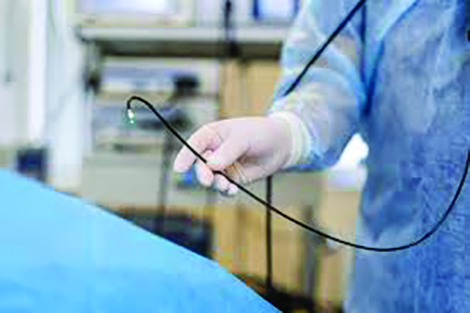By Hannah Chudleigh
Most people assume a colonoscopy is one of those annoying responsibilities that pile on with age. Unfortunately, that mindset, along with a social taboo around talking about it, keeps people from getting the vital procedure.
The fact is a colonoscopy can save your life. It’s used to find polyps that may indicate colon or rectal cancer, which is more treatable when caught early. The test is recommended for people who are 45 and older.
If you have any of these seven signs, it may be wise to talk to your healthcare provider to about a colonoscopy.
- Your stool is a different shape. If it is ribbon-like or more narrow than normal, you may have a blockage somewhere along your large intestine.
- A family member gets colon cancer. Everyone is at risk of getting colon cancer. However, that risk more than doubles if you have a family history of it. 3. You get diagnosed with iron-deficiency anemia. This is a sneaky sign of colon cancer that usually gets missed until the cancer has started spreading. Several conditions can cause iron-deficiency anemia, but colon cancer and intestinal bleeding are usually not the first causes to be ruled out. This is especially true if you’re a woman, because doctors may assume the anemia is from heavy menstruation. If you have anemia and your doctor can’t explain why, ask for a colonoscopy and see if it could be a bowel problem.
- You don’t feel relief after using the bathroom.If you still feel you need to go, you may need a colonoscopy to see what’s going on. Whether it’s a blocked bowel, an intestinal tumor, or an inflamed duodenum, you’ll want to get your condition checked by a doctor.
- You have certain medical conditions. People with ulcerative colitis, Crohn’s disease, irritable bowel syndrome, or other gastrointestinal conditions are more at risk of developing colon cancer.
- Your stool is bloody. This is a very serious sign. You should schedule an appointment with your healthcare provider immediately. This includes bleeding from the rectum as well as having blood in your stool. Of course, this could be something less serious—such as hemorrhoids—but it could also be indicative of some very dangerous conditions.
- Your bowel habits have changed. You know what’s normal for you. If a change lasts longer than a few days, call your healthcare provider. This can include the shape or texture of your stool, the frequency that you go to the bathroom, the color, or any kind of pain. If there’s been a significant change in your bowel habits, schedule a colonoscopy to make sure it’s not a long-term problem.
Even if you aren’t experiencing any of the symptoms, you should still get a colonoscopy regularly. Here are some sobering facts that demonstrate why:
- Colon cancer is the third most common type of cancer, and it’s the second-leading cause of cancer deaths.
- Colon cancer is easily detected with a colonoscopy. If caught early, more than 90% of patients can be completely cured.
- Colon cancer deaths are on the rise. In the last 30 years, rates among adults (younger than 50 years old have more than doubled.
Source: SelectHealth, a not-for-proit health plan in Idaho, Utah, and Nevada.
